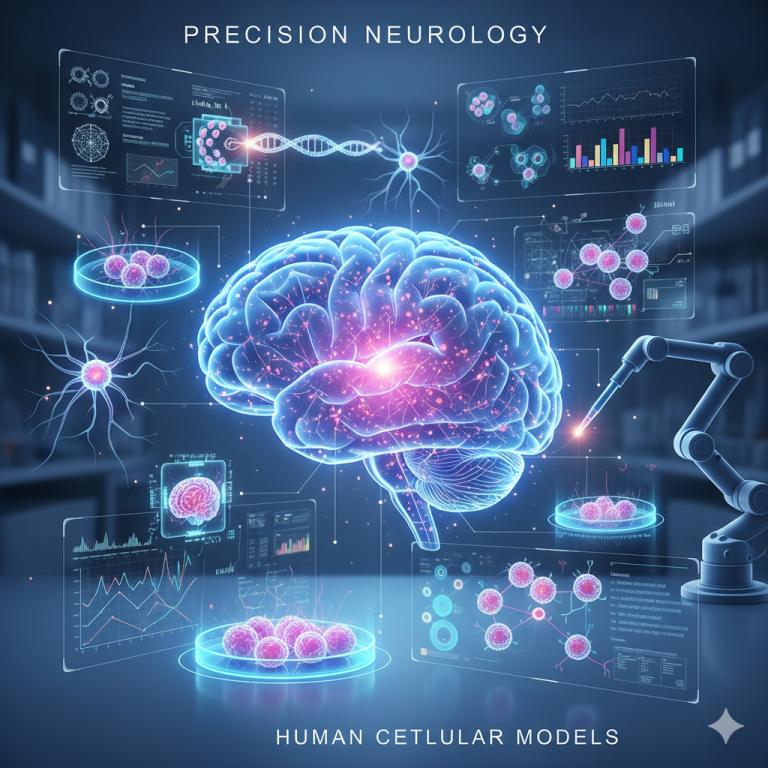
Introduction
Education is on the precipice of a transformation unlike any before. The integration of artificial intelligence into classrooms, online learning platforms, and administrative functions is shifting the way students learn and teachers instruct. With the promise of tailored educational experiences, real-time analytics, and automation, AI-Powered Learning is redefining traditional pedagogy. Yet, with great innovation comes great responsibility. The ethical concerns surrounding AI’s implementation in education pose significant questions about fairness, privacy, and long-term implications. As technology surges forward, the discussion surrounding EdTech Ethics is becoming increasingly urgent.
The Promise of AI in Education
Imagine a classroom where every student receives a customized learning experience. AI-driven platforms analyze student performance, detect gaps in understanding, and adapt coursework to fit individual learning speeds. AI-Powered Learning is not just a futuristic dream—it is already here. From intelligent tutoring systems to AI-assisted grading, the application of machine learning in education is making learning more accessible and efficient.
One of the most significant advantages of AI in education is its ability to provide real-time feedback. Traditional assessment methods often rely on periodic testing, which may not always reflect a student’s true capabilities. AI systems, however, continuously monitor progress, adjusting content dynamically. This ensures that students struggling with certain concepts receive additional support, while those excelling can move ahead at an accelerated pace.
Moreover, AI is bridging gaps in education for students with disabilities. Voice recognition software, text-to-speech applications, and real-time transcription services are enhancing accessibility, enabling learners of all abilities to engage more effectively. In remote learning settings, AI-powered chatbots assist students with queries, providing round-the-clock support without human intervention.
However, while the advantages are evident, a deeper examination of EdTech Ethics reveals the challenges that accompany these advancements.
Ethical Dilemmas in AI-Driven Education

Bias in AI: A Double-Edged Sword
The incorporation of AI in education presents a paradox—while it promises objectivity, it often inherits biases from the data on which it is trained. Bias in AI is one of the most pressing concerns, particularly in assessments and admissions processes.
AI systems designed to grade essays, for example, have been found to exhibit bias against certain linguistic patterns, disadvantaging non-native English speakers or students from diverse socioeconomic backgrounds. Similarly, automated admissions processes leveraging AI risk perpetuating historical inequalities if trained on biased data.
The potential for algorithmic discrimination raises important questions about fairness and equity. If left unchecked, AI’s reliance on past data could reinforce systemic educational disparities rather than dismantling them. This calls for greater scrutiny and the implementation of ethical AI frameworks to ensure that learning technologies are truly inclusive.
Student Data Privacy: Who Owns the Information?
The widespread use of AI-driven platforms means vast amounts of student data are being collected, analyzed, and stored. This raises a fundamental question: who owns this data, and how is it being used? Student Data Privacy is at the heart of the AI-in-education debate, as concerns about data breaches, misuse, and surveillance grow.
With AI-powered tools tracking student behaviors, preferences, and even emotional responses, the risk of personal data exploitation is heightened. Some EdTech companies monetize student data by sharing insights with third parties, leading to potential privacy violations.
Regulations like the Family Educational Rights and Privacy Act (FERPA) in the U.S. attempt to protect student information, but enforcement remains a challenge. Without robust policies, students may unknowingly become subjects of digital profiling, influencing everything from college admissions to career opportunities. Transparency in data collection, clear consent protocols, and stringent cybersecurity measures are imperative to ensure ethical AI adoption in education.
The Long-Term Impact: What is the Future of Education?
As AI continues to evolve, the Future of Education is poised for a radical transformation. Will human teachers become obsolete? Will AI-driven schools replace traditional institutions? These questions, once considered speculative, are now genuine concerns.
AI’s ability to automate administrative tasks allows educators to focus more on personalized instruction and mentorship. However, an over-reliance on AI could diminish human interaction, an essential component of cognitive and social development. The human touch in education—empathy, emotional intelligence, and nuanced understanding—cannot be fully replicated by algorithms.
Furthermore, there is the risk of a digital divide widening educational inequalities. Schools with advanced AI capabilities may provide superior learning experiences, leaving underfunded institutions struggling to keep up. If AI-driven education is not made accessible to all, it could exacerbate the very inequities it aims to resolve.
Balancing Innovation with Ethics

To harness the full potential of AI-Powered Learning while addressing ethical concerns, a balanced approach is necessary. Policymakers, educators, and technology developers must collaborate to establish regulations that ensure AI serves as an enabler, not a gatekeeper, in education.
A multi-faceted strategy can help mitigate risks:
- Algorithmic Transparency: AI models used in education should be auditable, with clear explanations of how decisions are made.
- Bias Mitigation: Developers must prioritize diverse data sets and bias detection tools to create fairer AI systems.
- Data Protection Laws: Stronger policies must be enforced to safeguard Student Data Privacy and prevent unethical data usage.
- Human-AI Synergy: AI should complement, not replace, human educators. Teachers must be trained to work alongside AI rather than be overshadowed by it.
- Ethical AI Governance: Continuous oversight is needed to ensure EdTech Ethics remains a priority in the AI revolution.
Conclusion
AI is undoubtedly reshaping education, offering unprecedented opportunities for personalized learning, accessibility, and efficiency. However, the ethical dilemmas surrounding Bias in AI, Student Data Privacy, and EdTech Ethics cannot be ignored. As we navigate the Future of Education, the challenge lies in leveraging AI’s benefits while safeguarding fundamental educational values.
Ultimately, AI should be a tool for empowerment, not exclusion. If implemented responsibly, it can create a more inclusive, efficient, and dynamic educational landscape. The question is not whether AI belongs in education—but how we ensure it serves all students fairly and ethically.




